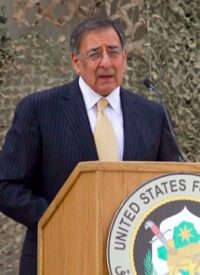
Panetta insisted that the best course of action is continued economic and diplomatic pressure on the country. “We have common cause here” with Israel, Panetta said. “And the better approach is for us to work together.”
Meanwhile, reported CNN, the International Atomic Energy Agency (IAEA) confirmed on January 9 that Iran has begun uranium enrichment at a facility in the northern part of the country. “The IAEA can confirm that Iran has started the production of uranium enriched up to 20 percent” at Fordo, in the mountains of Iran’s Qom province, said an IAEA spokesman. The spokesman assured that “all nuclear material in the facility remains under the agency’s containment and surveillance.”
According to CNN, Iran has said it is operating 3,000 centrifuges in the project, with another facility in Natanz said to have 8,000 centrifuges enriching uranium. Iran has maintained that its efforts are purely peaceful, with one Iranian newspaper explaining that in order “to provide medical assistance to 800,000 cancer patients, Iran needs to enrich uranium up to 20% to be able to feed Tehran’s [research] reactor that produces the needed radio isotopes.”
Even as Panetta appeared to downplay Iran’s nuclear progress, State Department spokeswoman Victoria Nuland called the latest news of the country’s uranium enrichment program “obviously a problem.” While experts explain that weapons-grade uranium must be enriched to about 90 percent, Nuland nonetheless called Iran’s 20-percent enrichment effort “a further escalation of their ongoing violations with regard to their nuclear obligations, including the legally binding U.N. Security Council resolution.”
Nuland insisted that “there is no possible reason for” enriching uranium to 20 percent, “if you’re talking about a peaceful program. So it generally tends to indicate that you are enriching to a level that takes you to a different kind of nuclear program.”
She called on Iranian officials to “suspend enrichment activities, cooperate fully with the IAEA, and immediately comply with all Security Council and IAEA board of governors’ resolutions.”
In line with Panetta’s indication of diplomatic pressure and economic sanctions, White House spokesman Jay Carney said that the Obama administration is “putting a great deal of pressure on Iran broadly because of its rogue behavior … the fact that it won’t live up to its international obligations with regards to its nuclear program.” He insisted that the “actions that we’re taking in concert with our international partners have had a significant impact on Iran, on the Iranian economy.”
Carney recalled sanctions within the past week that “had the impact of causing the Iranian currency to drop dramatically. So we work with our partners, as well as unilaterally, to increase that pressure.”
Two of the top Republican presidential candidates have used the specter of a possible Iran weapons program to pose as strong on defense. “If we re-elect Barack Obama, Iran will have a nuclear weapon,” declared Mitt Romney. “And if you elect Mitt Romney, Iran will not have a nuclear weapon.”
Similarly, noted the Associated Press, “Rick Santorum has said that the U.S. should plan a military strike against Iran’s nuclear facilities and ‘say to them that if you do not open up those facilities and close them down, we will close them down for you.’”
By contrast, while Ron Paul agrees with Panetta that Iran is nowhere close to producing a nuclear bomb, he has vehemently opposed the sanctions and “diplomatic pressure” being pursued by the Obama administration, arguing that it will do little more than strengthen Iran’s resolve to produce nuclear weapons, as well as place the U.S. on a collision course for war with the Middle Eastern country.
As reported by Warren Mass in The New American back in April 2010, Paul voiced his opposition to Congress’ Comprehensive Iran Sanctions, Accountability and Divestment Act (H.R. 2194), referring to the legislation as little more than a disguised “push for war on Iran.”
In debate on the bill, Paul said that efforts against Iran, just then gathering steam, had all the feel of the pressure that pushed the U.S. into conflict in Iraq: “… the same falsehoods and distortions used to push the United States into a disastrous and unnecessary one trillion dollar war on Iraq are being trotted out again to lead us to what will likely be an even more disastrous and costly war on Iran. The parallels are astonishing.”
Mass noted that back in 2006, Congressman Paul wrote in his “Texas Straight Talk” column that the types of sanctions now being pursued against Iran “are acts of aggression” that could well lead to war. “Sanctions increase poverty and misery among the very poorest inhabitants of targeted nations, and they breed tremendous resentment against those imposing them.”
That resentment, along with a strong measure of resolve, was on display in a January 8 op-ed in the Tehran Times. While insisting — no doubt dishonestly — that producing nuclear weapons “has no place in Iran’s comprehensive defensive doctrine,” the editorial nonetheless confirmed that “Iran regards access to nuclear energy as its inalienable right” and declared that “it will never take a step backward in its endeavors to attain nuclear self-sufficiency.”
As for the sanctions, the editorial insists that they “have never had any palpable impact on the daily life of Iranians. Not one Iranian believes that the country would have had a better economic situation if the West had not imposed sanctions.”
What the sanctions do achieve, the editorial warned, is to intensify “anti-U.S. sentiments across the globe,” while making “the Iranian government more determined to continue on the path of resistance in order to defend the rights of Iranian citizens.”



